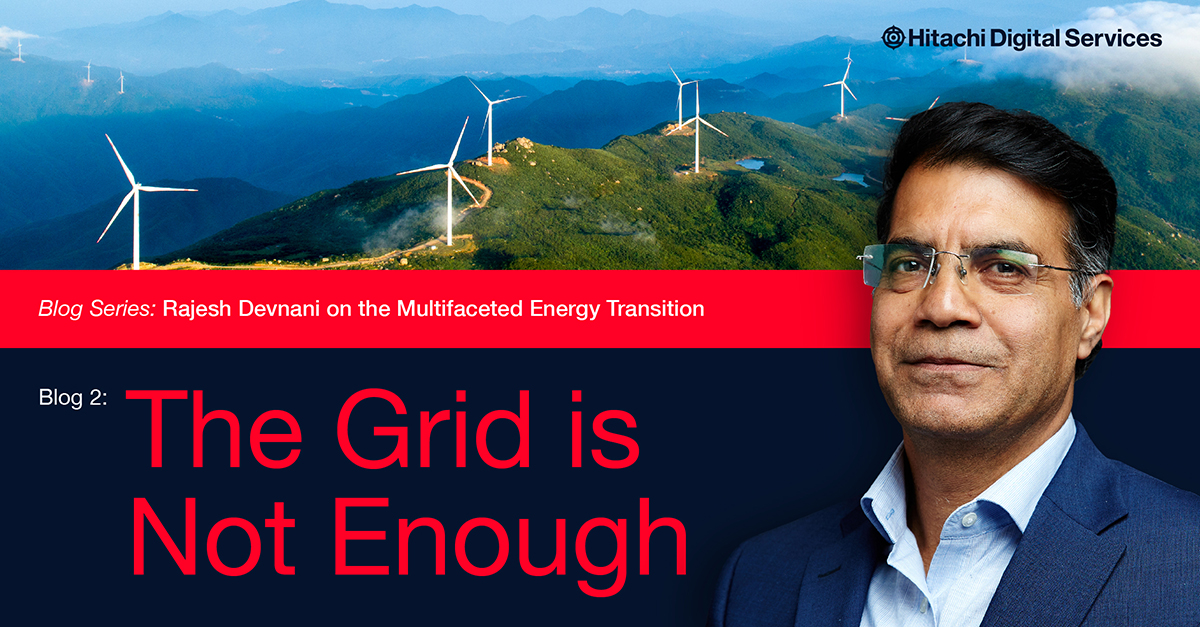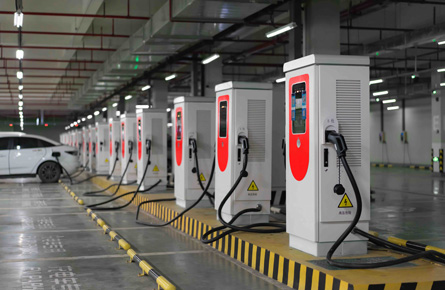May 29, 2024
Climate Change is the most seminal and existential issue that we face this century and there is no escaping the fact that our response within the next few decades will determine what we will bequeath to our future generations. The Energy Transition needed to address Climate Change is clearly underway, but the speed, scale and momentum needed to progress towards net-zero by 2050 seems increasingly an elusive target based on the current progress and remains a monumental challenge of epic proportions (think the Marshall Plan in the aftermath of the World War II multiple times over and some over). While Energy Transition constitutes the biggest challenge of our generation, it is paradoxically the greatest opportunity of this century too. As Larry Fink, CEO of Blackrock has said, the opportunity is huge and the next 1000 unicorns will be the ones not in ride share or food delivery apps but the ones that enable a clean energy transition.
There may be a lot of hype around the existential risk of AI (after all, AI and GenAI are key themes resonating across boardrooms and governments worldwide). Still, no matter what the pundits portend about the dystopian scenarios of AI and how it may mean the end of our civilization, our response to climate change and how the actual Energy Transition unfolds will likely be a key determinant for the future of humanity.
‘Cos before the Bots get us, we may be our undoing’! Your’s humbly
The latest COP (COP-28) definitely drove the aspiration in the right direction with pronouncements around tripling investment in renewables, the methane pledge and finally settling the semantic debate around ‘phase down’ vs ‘phase out’ for fossil fuels amongst other major initiatives, but the road ahead for Energy transition is a long winded one with many surprises enroute.
As the Energy transition unfolds, a realization must dawn upon us: Energy Transition is a complex multi-faceted mammoth challenge for our generation and the future one and we need to grapple with the multiple dimensions & inter-dependencies that need to be addressed if we need to come good on the other side for the long-lasting fate of humanity.
Through this blog series, we will strive to peel the onion on several dimensions & inter-dependencies which make Energy Transition profoundly complex. Diverse topics are usually clubbed under the overarching moniker of Climate Change, but there is a nuanced view of things under that rubric. Energy Transition to address the Climate Change tsunami that is already in play needs a deliberate analysis to understand the multiple dimensions and their inter-relationships. Unless we understand and address the multifaceted aspects of the massive transition needed to focus on Climate Change, we are merely seeing just the tip of the iceberg.
We must address the multiple dimensions confronting us in our tryst against Climate Change and come out good on the other side. While covering all the diverse dimensions in one blog post is difficult, this blog will introduce some higher order dimensions of the Energy Transition. Subsequent blogs will drill down on individual topics on each of the dimensions (e.g., the potentially massive role that CCS could play as a technology initiative to combat Climate change, the role that Carbon Credits and Carbon Accounting has to play in the Energy Transition, the impacts of Electrification of non-energy sectors like Industry or Transportation and many other themes).
The first and foremost dimension is the need to acknowledge the still prevalent Energy Denialism and the geo-politics of Energy Transition. We have our work cut out to neutralize the forces of denialism and gain consensus that Climate Change is real and needs to be addressed head-on. Good progress has been made in this space, but the skepticism still looms large and needs to be silenced with science. Climate Change impacts lives and livelihoods massively even today through the ever-increasing frequency of extreme weather events, which have grown exponentially in the past few decades. It has major implications since the disadvantaged are the ones who disproportionately end up bearing the brunt of climate change. Geo-politics has also always and continues to play a crucial role in how the Energy Transition will unfold. The continuing instability and wars across the globe continue to weigh heavily on the global energy transition specifically with issues pertaining to nation-state energy security.
Geopolitics is relevant from another perspective too. In addition to the heightened geo-political tensions in the current landscape, the energy transition seems to further swing the pendulum away from the established multi-lateral trade world order towards protectionism, subsidies, local production mandates, etc., with an aim towards self-reliance. The mining, extraction and processing of critical metals & minerals that will lead the charge towards supporting the energy transition to electrify our industry, transport & heating needs alongside providing grid-scale storage depicts a very lopsided picture. Extreme dependence on certain nations ’states for key minerals and rare earth minerals needed for the energy transition needs adept navigation, along with the associated geopolitics, to ensure that the transition is not held captive to vested interests. Supply Chains need to be streamlined, unleashed, and untangled. The exploration of alternative materials & pathways (including new innovative chemistries), which will eliminate extreme dependence on individual sources of supply is another key imperative.
Energy equity is also a key resonating theme and has its roots etched in history. It is premised on how civilization took root and which nations benefited early from burning fossil fuels to grow their economies and catapult into advanced economies. Equity is a key force that we must contend with. To date, advanced economies have grown outsized over the past century by leveraging fossil fuels and contributing disproportionately to the cumulative emissions. While it is a good argument to give the dystopian climate change rhetoric to halt developing and emerging economies in their tracks, one must look at the cumulative emissions to date and the dependencies of economic development on fossil fuels in emerging and developing countries. There is, at the very least, an argument from developing economies for a level playing field that we must pay heed to.
Linked to this is the topic the Loss and Damage, which was a major agenda item at the COP-27. It raises the issue of adaptation more than mitigation since mitigation may potentially not be the all-encompassing solution alone anymore. Despite the promises, the few hundred million dollars fund committed to Loss & Damage in comparison to the overall opportunity of trillions of dollars needed for the climate response) hasn’t come to fruition yet. Add to the same, and ironical as it may be, the parts of the world that have contributed the least to the emissions are the most susceptible to the impacts of climate change.
A key meta-dimension which can enable a successful Energy Transition despite all odds is technology. Technology on specific archetypes is growing by leaps and bounds. Solar and Wind (and the multiple variants beneath them like home/community/grid-scale solar or onshore/offshore/floating point offshore) have proverbially gotten the wings and are on an exponential growth curve driven by 10x improvements over the past decade. They are pretty much at par or beyond with Fossil fuels on a cost basis and on a continuous upward trajectory. And that is just speaking about the poster child of renewables. There is so much unearthed potential for geothermal (no pun intended), Nuclear (Small Modular nuclear reactors), which provide a safe and credible alternative, and Carbon Capture and Storage (CCS), which is still a bit in its nascency phase but growing exponentially. And there is the whole great promise of Green Hydrogen to address hard-to-abate sectors. Then there are the exotic variants like Geo-engineering (injecting aerosols in the stratosphere), which may at best sound dubious but can’t be ruled out. Last but not the least, there is a whole array of Grid Enhancing technologies which can act as a bridge to deliver enhanced efficiencies and outcomes till the larger moonshot bets pay-off.
Public Policy is another major dimension of the Energy Transition equation. It will determine the nation states’ response to either provide a fillip to the climate change response or stymie/undermine the efforts in that direction. Eventually, we must coalesce in a positive direction as nation-states before it’s too late. The major initiatives & pronouncements from developed nation-states in terms of defined policies and acts (IRA, RePower EU etc.) are the right step in this direction but need to be bolstered constantly to ensure that the momentum in this direction keeps pace. Regulatory standards and mandates around Carbon reporting and CBAM, i.e., Carbon Budget Adjustment Mechanism in the EU are a step in the right direction. If we need to get to net zero, the first step in the process is to be able to account for and measure Carbon emissions accurately. In the words of the late management Guru Peter Drucker: ‘What gets measured, gets managed.’ We are running out of our emissions budget, and unless we pay close attention to it, we will be heading towards disaster.
Climate Financing is another key consideration in our quest for a sustainable planet. There has been a lot of impetus around ESG investing and Climate Tech investments. Still, the momentum needs to grow to ensure that all future investments are geared with a specific lens on this, and this becomes a de-facto criterion for all future investments in capital projects.
No discussion on this topic would be complete without a dialog on the adverse impacts on specific communities and individuals. How do we soften the blow for individuals who have relied on the fossil fuels-enabled economies for their livelihoods and provide them with a soft landing? How do we deal with the issues of stranded assets in trillions of dollars? How do we make the move to the new energy transition economy take root? These are complex issues that we must grapple with.
Climate Change and the ensuing planned Energy Transition to tame its impact are colossal issues with diverse ramifications. We must consider it from a multi-faceted perspective (technology advancements, public policy, geopolitics).
This is just a peak into the enormity of the challenge that the Energy Transition entails. Over subsequent posts we will dive into individual facets of each of these dimensions to provide a nuanced view.
Connect with me on LinkedIn, Please comment on what dimension and facet you would like to hear more about by responding to this blog post, as future blog posts will be aligned with topics of interest. Each of these dimensions and its components is a nuanced issue and needs a fair degree of debate and deliberation to get an objective viewpoint. Let’s join the Energy Transition journey together to create the right momentum. Thanks.
This is the first in a new monthly series by Rajesh Devnani on the fast-changing energy transition.











